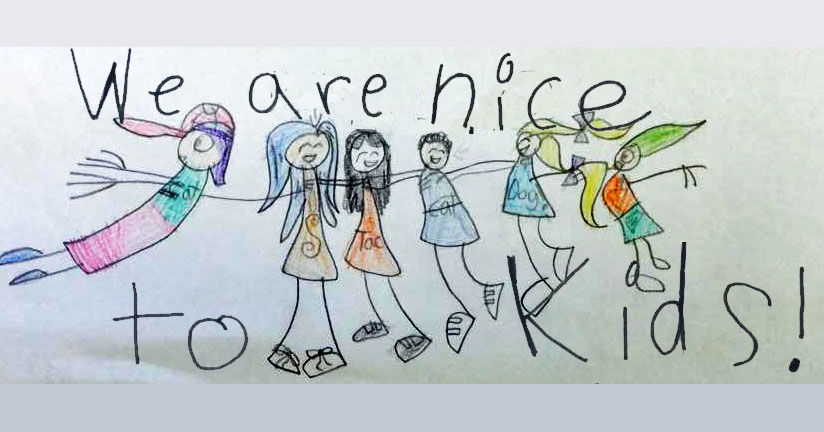Name Calling in the Time of Trump

By Michelle Strater Gunderson.
Last week a group of my first grade girls was taking an unusually long time in the bathroom. When you teach little ones you get a sixth sense for when something is going on. I knocked on the door and said, “Dear ones, whatever can be keeping you?” The ring leader answered me with her cute front toothless diction, “We are talking about Trump because we know you won’t let us in the classroom. We can’t stand him.”
Now, before you jump straight to the comments section and make ungodly statements about my ban on political speech and intolerance of differences, you need to hear me out.
I teach in a Chicago Public School in a neighborhood that is traditionally LGBTQ. Many of our students have two moms or two dads, and it is fair to say that most of our families are politically liberal with many who consider themselves progressive. Yet, in this context, there are families who still support Trump.
During the month before the election, one of my students made it very clear that his family supported Donald Trump, and he talked about it often. The children started teasing him on the playground. In fact, the taunting game became “nanny nanny boo boo, you vote for Trump” as children tag one another (much like the game of cooties you might remember from childhood).
After recess that day girl came running into the classroom crying uncontrollably. “Why would they say I like Trump? I am a good person. I don’t say bad things.”
We held a class meeting to try to work this out, but the crying kept up, and the hurt feelings were incredibly deep. Now, I ask you, reader, how have these conversations been going for you about Donald Trump with the adults in your lives? How many relatives or friends have you lost on Facebook? Put yourself in the children’s shoes. Can you imagine how confusing and how hard it is to navigate this space for first graders?
Usually during class meetings we make a group decision about how we are going to proceed in working with one another, but there just seemed to be no end to it. I finally said, “These are arguments that adults are having, and it is very hard right now for us to understand one another.” I decided that we would not talk about the election in our classroom any more. I needed to protect the children whose families supported Trump and stop the harmful teasing before it went any further.
This is my thirtieth year of teaching, and I have always taught about the elections and current events no matter what grade I teach. But this was more than we could approach in our class. Many of our families consider Trump’s presidency as an existential threat and the anxiety and pressure has filtered down to the children. And when children feel anxiety and pressure, they misbehave.
The other day, an eruption happened during lunch in the cafeteria. One of my students decided to go around the room calling the others “losers.” You are probably saying to yourself that first graders have been calling Name Calling in the Time of Trump - Living in Dialogue:
